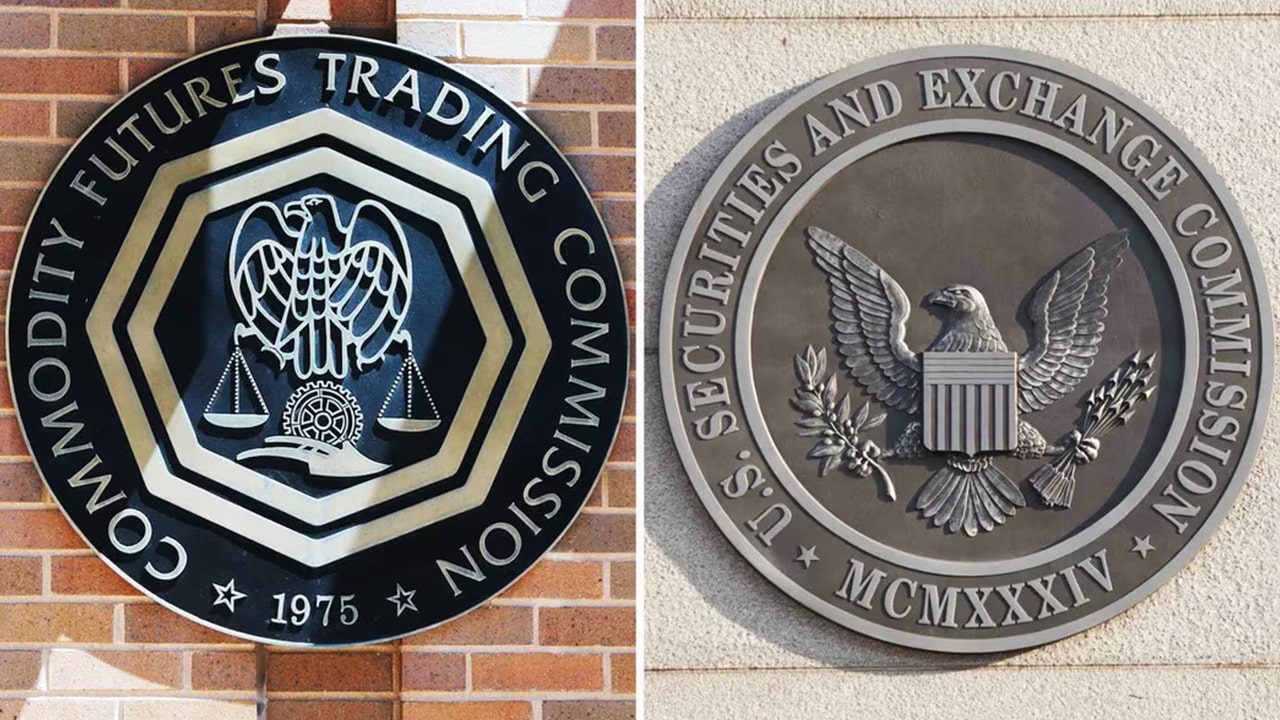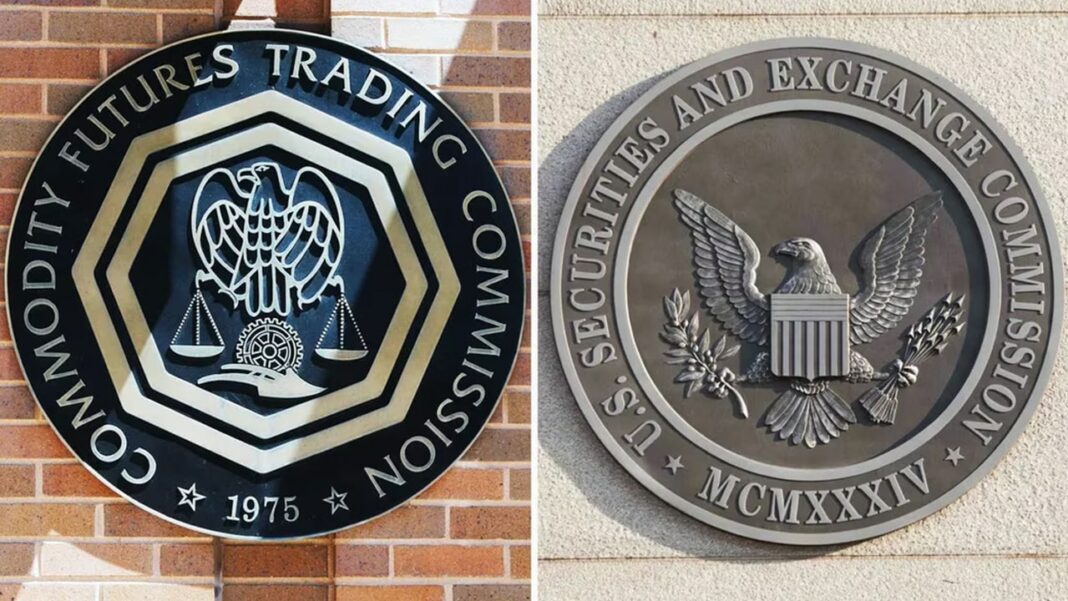The debate over whether cryptocurrencies should be defined as securities, like stocks, or commodities, like wheat or gold, has implications for whether, how and by whom they are regulated.
Securities and commodities are two very different financial instruments and in the U.S., are regulated by two different government organizations. When it comes to cryptocurrencies, a legal determination that a cryptocurrency is either one of those financial instruments has wide-ranging implications about how it can be sold, where it can be listed and who might sue if an issuer oversteps the mark.
The matter is far from decided, and given the breadth of the crypto market, it is likely that there won’t be a one-size-fits-all decision, but will vary depending on the token.
In this article, we will try to explain the differences between securities and commodities and explore the ongoing debate about whether or not cryptocurrencies should be classified as one or the other.

Securities and commodities explained
To get started, let’s first define securities and commodities.
Securities are financial instruments that represent a claim on the issuer, such as stocks, bonds and derivatives and are regulated by the Securities and Exchange Commission (SEC). Following a landmark lawsuit from 1946, SEC v W. J. Howey Co., U.S. securities law defined sales of securities as “investment contracts” – meaning that a person who invests money in a security “is led to expect profits solely from the efforts of the promoter or a third party,” according to the decision. The investors could later realize that profit through the sale of the security, or by collecting dividends or interest payments. The “Howey test” that derives from this decision has already been used in several SEC enforcement cases, notably in The DAO case, a suit against Ripple’s XRP token and more recently in a case against Dapper Labs, who created NBA Top Shot, a sports collectible non-fungible token (NFT), and associated marketplace.
Commodities, on the other hand, are physical goods that are traded on exchanges in wholesale quantities. These can include agricultural products like corn and wheat, as well as precious metals like gold and silver. Commodities are typically traded based on their current market value. In the U.S., certain wrongdoing in commodities trading is policed by the Commodity Futures Trading Commission (CFTC), but the agency doesn’t yet have broader regulatory authority over spot trading, like the SEC’s powers over securities.
Why it matters whether crypto is a security or a commodity
So, how does this affect cryptocurrencies and their regulation?
If a cryptocurrency is a security, cryptocurrency issuers and exchanges must seek the necessary licenses from their securities regulators. This is usually pretty difficult to do, so the crypto industry spends a huge amount of effort trying to ensure that cryptocurrency sales and developments avoid securities laws.
The principal way in which issuers seek to avoid violating securities law is through decentralization. If a cryptocurrency is developed in such a way that a securities regulator could not identify a central, coordinated group responsible for driving up the value of the token, then the asset is less likely to be considered a security. That is one reason why decentralized finance (DeFi) projects take measures to decentralize the development of their projects and split up governance with decentralized autonomous organizations (DAOs), as well as involve mechanisms like proof-of-stake as a consensus mechanism. The argument being that if people are both investors as well as participate in the growth of the project, either by staking the coin and becoming validators, or voting in DAO decisions, they are no longer solely relying on the “third party” to produce returns that the Howey test requires.
The risk for cryptocurrencies being classified as securities is that exchanges may not list them to avoid the risk of being fined by the SEC for listing unregistered securities. There are also further state-by-state rules and regulations that cryptocurrencies can run afoul of, such as the suit against KuCoin by the New York Attorney General or multiple states’ regulators teaming up to target a coin featuring Elon Musk’s image.
One of the first formal guidance publications by the SEC related to the ICO (initial coin offering) boom. The SEC’s Strategic Hub for Innovation and Financial Technology reinforced its guidance in April 2019 with its “Framework for the Investment Contract Analysis of Digital Assets,” which noted the speculative nature of many of the ICOs, their lack of utility and inability to be used as a payment or store of value as some factors that would lead those coins to be classified as securities.
One ICO that failed to get it right was Kik. When the CEO of Kik, Ted Livingston, accidentally told a crowd that buying Kin tokens would make them a “ton of money,” the SEC sued Kik, arguing that he had pushed investors to purchase Kin tokens with an expectation of profits. The SEC eventually fined Kik $5 million; the lawsuit nearly bankrupted the company.
On the other side, the CFTC has long argued that cryptocurrencies such as bitcoin and ether are commodities and can be regulated as such under the Commodity Exchange Act (CEA).
This underpinning argument of the CTFC is that because bitcoin, for example, is interchangeable on exchanges – each bitcoin is of identical worth, just like how a sack of corn is of equal worth to another sack of corn of the same grade – it is a commodity. This determination was solidified in the CFTC’s case against crypto exchange Bitfinex and its sister company, stablecoin issuer Tether. In an October 2021 filing, the agency said that “digital assets such as bitcoin, ether, litecoin and tether” are all commodities.
Where the regulatory debate stands
There are a lot of interested parties and a lot of moving parts, so it’s hard to predict what the regulatory landscape will look like a year from now. Many of the U.S. congressional efforts have focused on granting the CFTC wider latitude to regulate spot trading of the non-securities tokens, of which bitcoin is so far the only one openly agreed on by both agencies.
One potential outcome of this debate would be that some cryptocurrencies are classified as securities, while others are classified as commodities. This could lead to an even more complex regulatory landscape in which different cryptocurrencies are subject to different rules and regulations.
Another alternative is that lawmakers could decide to treat crypto as its own asset class, with bespoke rules. That’s the approach largely taken by the European Union, where the Markets in Crypto Assets (MiCA) regulation sets out the steps to be followed by crypto issuers, wallet providers and exchanges to protect consumers and ensure fair trading. Even then, there are still likely to be legal gray areas which will need to be looked at case by case – such as whether a particular series of non-fungible tokens will need to follow the rules.
In April 2023, Rep. Patrick McHenry (R–N.C.) said that the U.S. will have a crypto bill in two months that will address both securities and commodities issues, which was supported by Sen. Cynthia Lummis (R-Wyo.), who is known as the senate’s “Crypto Queen.” In 2022, Lummis teamed up with Sen. Sen. Kirsten Gillibrand (D-N.Y.) to introduce the Responsible Financial Innovation Act (RFIA) with the aim to clearly demarcate what is a security and what is a commodity. Lummis expects to introduce a new, improved version of the bill in the summer of 2023.
Meanwhile, SEC chair Gary Gensler, has said he believes his agency has the authority to oversee crypto and that “most crypto tokens are securities,” but during a contentious hearing in April 2023, refused to answer whether or not ether was a security. SEC attorneys have indicated that staffers may view crypto tokens such as Voyager’s VGX as securities, even where the agency hasn’t reached a formal view.
In May 2023, the SEC removed its definition of “digital asset” in the final version of a hedge fund rule, which would have been its first formal definition of the term, saying they are “continuing to consider this term” at this time.
















